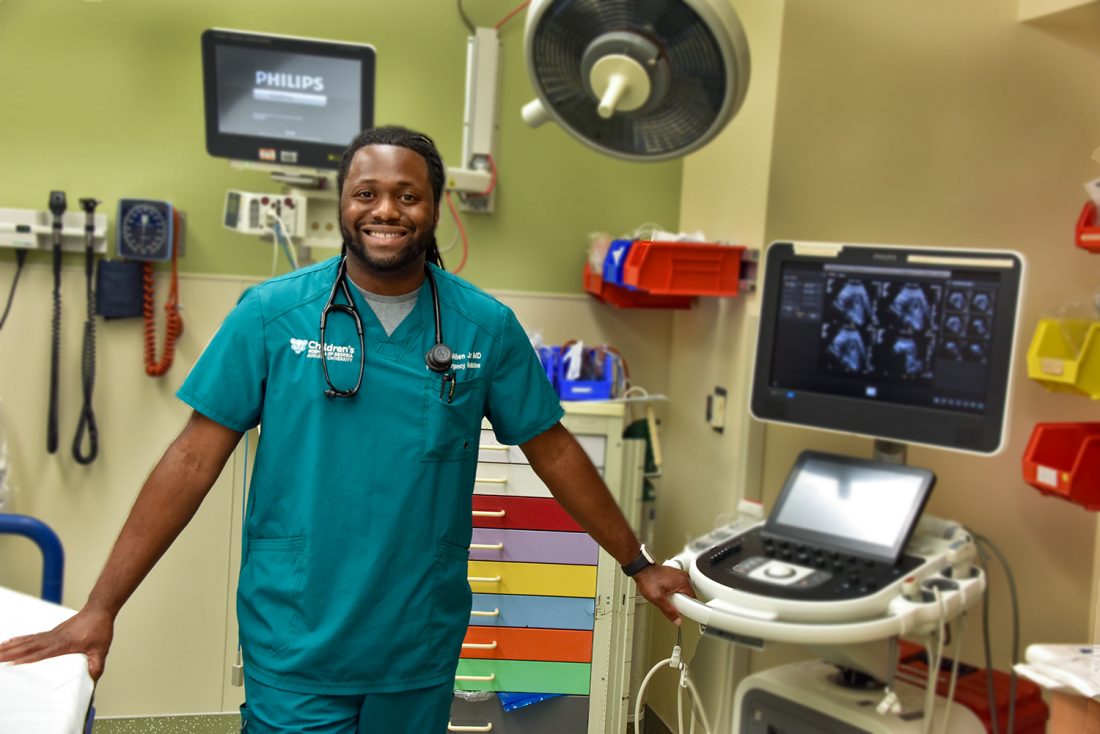Rates of child abuse have skyrocketed during the COVID-19 pandemic, likely because of several factors, including heightened stress, loss of income for some and social isolation.
And as people begin to gather in groups again, even more of that abuse, which the pandemic has helped keep behind closed doors, will come to light, says a child abuse expert at the Medical College of Georgia at Augusta University.
“Most people don’t realize how much child abuse is actually happening,” says Dr. Kevin Allen, a pediatric emergency medicine physician at the Children’s Hospital of Georgia, who also serves as medical director of the hospital’s Child Protection Team. “Some people don’t even realize what constitutes abuse. For instance, people don’t realize that neglect is a type of abuse. More than 70% of the cases we see are actually neglect.”
Though it may be difficult to realize a child is being abused, Allen says there are some tried and true signs to look for. When it comes to neglect, most cases are due to a lack of adequate resources, so people may notice that a child is always dirty or doesn’t seem like they have any clean clothes, for example.
“A child who is always hungry, or underweight and doesn’t look like they’re being fed is another sign,” he says. “Or if you know a child has a medical problem and it doesn’t look like the problem is being addressed.”
When it comes to physical abuse, Allen says to remember that most young children are not going to just show up with serious injuries. Their bodies are developing and they are always moving around — they’re designed to fall and get hurt and heal, he says. While bruising on the limbs is typical for children, “people should be more concerned about bruising on places like the head, neck, chest, back or stomach.”
Unfortunately, when it comes to sexual abuse, those cases are harder to catch. There are reasons for that, Allen says. Most sexual abuse is committed by someone the child knows — a caregiver or someone who has regular access to them. And part of the way abusers often manipulate their victims is by grooming them to think what they’re doing is ok.
“They typically don’t leave any marks either,” he says. “Nearly 90% of victims will have a normal physical exam.”
The signs of sexual abuse are often more subtle — like a child who seems suddenly overly reserved or a child who has previously been a social butterfly starts spending more time alone, “particularly when you’re talking about middle school aged females. Or when kids who are doing great in school and all of a sudden start doing poorly at school. That points to something going on at home and that could be abuse.”
Speaking up about suspected abuse can be a scary prospect to many people, one that Allen says he understands. “But to me, it’s always better to err on the side of the child’s safety. Even if you’re wrong, if there’s a reason it popped into your mind, something made that happen. The easiest thing to do is just to make a report.”
Anyone can make a report about suspected abuse to their state’s Division of Family and Children Services and callers are kept anonymous. That report simply gets another set of eyes on the child, Allen says. “And DFACS is going to do everything they can to keep the family unit together. Even if there is abuse, they do what they can to keep a child in the family. If it’s the parents for instance, they will send the child to live with an aunt or something. You don’t need to fear ripping a child away from his or her family.”
When it comes to parents protecting their children against abuse, he recommends a simple strategy — being diligent in watching your children and noticing when things change, particularly if they act differently around a certain person.
As recently as 2016, there was a child being abused — sexually, physically or emotionally — every 33 seconds in the state of Georgia. In 2018, one in every six girls and one in every eight boys were assaulted by the time they turned 8 years old. Allen suspects the numbers are getting worse now, “closer to one in four for girls and one in six for boys,” he says.
 Augusta University
Augusta University




